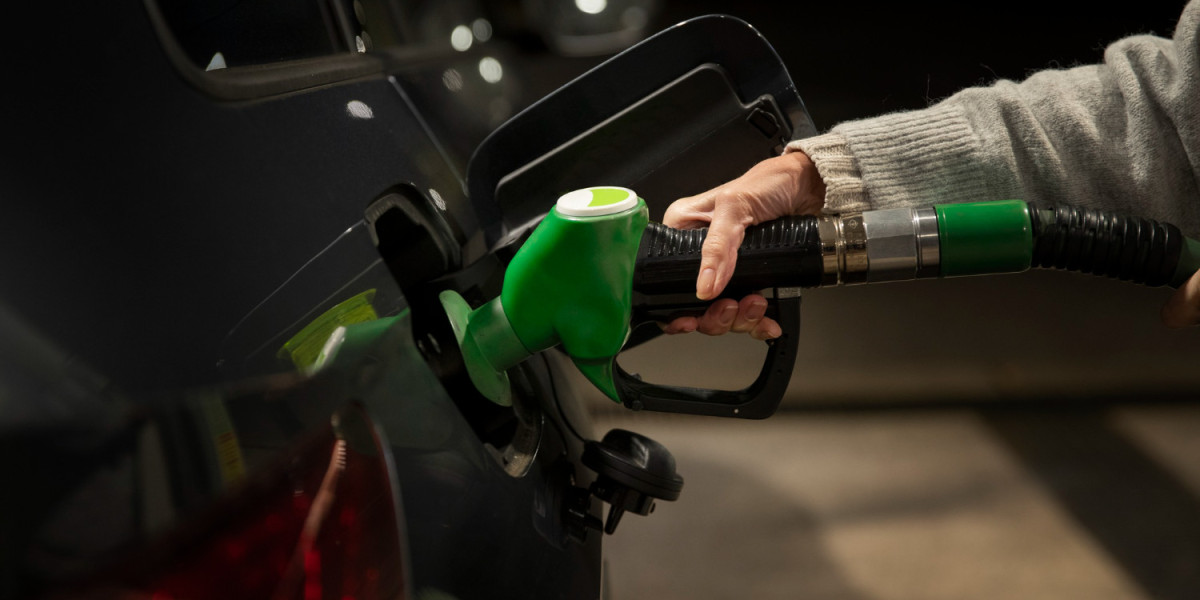Today, technology is redefining how businesses handle fuel logistics. The rise of on-demand fuel delivery apps has offered a smarter, faster, and more transparent way to manage fuel consumption. These apps are no longer just conveniences for individual car owners—they’ve become strategic tools for businesses seeking operational efficiency, cost control, and sustainability
This article explores the key benefits of using on-demand fuel delivery apps for businesses and how this evolving digital service is transforming commercial fuel management
The Digital Transformation of Fuel Logistics
These apps allow companies to schedule fuel deliveries directly to their vehicles or equipment—whether parked at a depot, on a job site, or even while in use. Real-time tracking, digital payments, automated receipts, and usage reports are now part of a seamless, efficient process that delivers more than just fuel—it delivers data, accountability, and peace of mind
1. Operational Efficiency: Fueling Without Interrupting Work
One of the most immediate and tangible benefits of using on-demand fuel delivery apps is improved operational efficiency. Traditionally, fueling required drivers to detour from their routes to visit gas stations, often during peak hours. This not only consumed fuel but also wasted valuable labor time.
On-demand apps eliminate this inefficiency by allowing businesses to bring the fuel directly to the asset. Vehicles, generators, or heavy machinery can be refueled on-site during off-hours, reducing downtime and increasing productivity. Whether you operate a delivery fleet, a construction site, or mobile services like food trucks, on-site fueling can save countless hours over time.
Moreover, with features like automated scheduling and repeat deliveries, companies can ensure consistent fuel availability without manual coordination.
This new approach has given rise to gas delivery app development, where technology enables real-time logistics optimization—making fuel delivery more predictable and cost-effective.
2. Cost Savings Through Data-Driven Decisions
Fuel costs account for a significant portion of a business’s operational budget. On-demand fuel delivery apps provide a more accurate and controlled environment for fuel consumption, helping companies reduce both direct and indirect costs.
Through the app, businesses can track fuel consumption patterns, delivery frequency, and costs per vehicle. This data helps identify inefficiencies such as fuel wastage, unauthorized fuel usage, or poor route planning. Some apps even use AI-driven analytics to provide suggestions on optimizing fuel usage or identifying vehicles with unusually high consumption.
Moreover, businesses can save money by consolidating fueling needs under a single vendor rather than dealing with multiple gas stations or card programs. Pricing tends to be more competitive, and volume-based discounts are often easier to negotiate when using a dedicated app.
Companies that leverage on demand app development for fuel delivery benefit from reduced overhead, better budgeting, and increased financial visibility.
3. Real-Time Fuel Tracking and Transparent Delivery
Transparency is essential in any business operation, and fuel logistics is no different. On-demand fuel delivery apps offer real-time tracking and detailed logs of every delivery. Businesses can monitor when, where, and how much fuel was delivered—along with photo proof, digital receipts, and location data.
This level of transparency eliminates the ambiguity often associated with traditional fuel delivery services. Business owners no longer have to rely on paper logs or employee honesty to manage their fuel records.
This level of visibility also supports compliance with internal audits, government regulations, or insurance requirements. With a full digital trail, businesses can confidently validate fuel consumption and demonstrate operational integrity.
The emergence of these features highlights the role of a fuel delivery app development company in designing enterprise-grade solutions that combine logistics and technology for business clients.
4. Enhanced Fleet Management and Scheduling
Fleet-heavy industries such as logistics, ride-sharing, emergency services, or field operations face unique challenges in managing fuel. Unpredictable routes, fluctuating demand, and tight schedules make it difficult to maintain fueling consistency without disrupting operations.
With on-demand fuel delivery apps, businesses can schedule fuel deliveries around fleet availability and operational cycles. Many apps now offer integrations with fleet management software, allowing companies to sync their delivery schedules, track fuel usage per vehicle, and receive alerts for refueling.
This creates a proactive approach to fuel management. Instead of reacting to fuel shortages, businesses can anticipate and plan deliveries in advance. Drivers no longer have to wait in line or make stops for fuel, which improves efficiency and driver morale.
Advanced on demand fuel delivery app development includes customizable dashboards, fleet analytics, and delivery automation, ensuring the right vehicle gets the right amount of fuel at the right time.
5. Contactless and Safe Fueling Operations
In the post-pandemic world, safety and minimal contact have become top priorities across industries. On-demand fuel delivery apps have adapted by offering fully contactless services—from scheduling to payment and documentation.
Fuel is delivered directly to the customer’s location without the need for in-person communication. Delivery personnel follow strict safety protocols, and mobile apps facilitate seamless transactions without cash or paper. This is especially important for businesses that prioritize the health and safety of their staff or operate in highly regulated environments.
Beyond pandemic safety, contactless fueling minimizes operational disruption. Equipment operators don’t have to halt work or supervise deliveries. Fuel is delivered efficiently, and digital confirmation ensures accountability.
This trend has become a standard feature in gas delivery app development, offering unmatched convenience in the fueling process.
6. Better Inventory and Compliance Management
Many industries, especially those operating machinery or storing backup fuel, must manage fuel inventory levels and adhere to environmental or industry-specific regulations. Manual tracking often leads to errors, delayed replenishment, or compliance issues.
On-demand fuel delivery apps include features to track tank levels, generate compliance reports, and alert businesses when fuel levels are low. This automation reduces human error and ensures timely refueling to prevent operational delays.
Some apps also provide environmental impact data or support compliance with local fuel storage regulations. Reports can be exported, audited, and shared with stakeholders, giving businesses greater confidence and control.
For these advanced features, companies often partner with a specialized fuel delivery app development company capable of tailoring platforms to their unique industry needs.
7. Scalability and Customization for Growing Businesses
As businesses grow, their fuel requirements evolve. Whether expanding a fleet, opening new locations, or entering new markets, fueling operations must scale accordingly.
On-demand fuel delivery apps are built with scalability in mind. Businesses can manage multiple sites, schedule deliveries to various locations, and access centralized dashboards for consolidated fuel management. Admins can control permissions, monitor different teams or projects, and customize delivery settings to suit each operational unit.
Moreover, businesses can work with developers to add new features, integrate third-party tools, or customize interfaces to fit their workflows. This makes fuel delivery apps a long-term asset that grows alongside the company.
This flexibility is one of the key selling points of on demand app development in the fuel delivery sector. The app evolves with the business, not the other way around.
8. Competitive Advantage in the Digital Age
As digital transformation sweeps across industries, adopting advanced technologies is no longer optional. Businesses that embrace mobile fuel delivery gain a clear competitive edge over those that rely on outdated systems.
By offering faster refueling, better cost control, and seamless management, businesses position themselves as modern, efficient, and eco-conscious. Clients and partners take notice of operational agility, and employees benefit from smoother workflows.
Using a high-quality fuel delivery app also reflects positively on a company’s brand, showing a commitment to innovation and employee productivity.
For businesses looking to stand out in a crowded market, working with an experienced fuel delivery app development company ensures they get a robust, scalable, and feature-rich platform tailored to their goals.
Final Thoughts
The fuel delivery industry is no longer just about transporting liquid—it’s about delivering value, insights, and efficiency through smart technology. As businesses look for ways to streamline operations, save costs, and operate more sustainably, on-demand fuel delivery apps present a compelling solution.
From real-time tracking and contactless fueling to cost control and data analytics, these apps bring a host of benefits that extend far beyond simple convenience. Businesses that adopt this technology can gain better control over their fuel logistics, scale their operations with ease, and gain a digital advantage in a competitive world.
Whether you're a small business managing a few vehicles or a large enterprise operating a nationwide fleet, now is the time to explore what on-demand fuel delivery can do for you. And to ensure success, partnering with a seasoned fuel delivery app development company is your first step toward building a smart, reliable, and future-ready fuel management solution.







